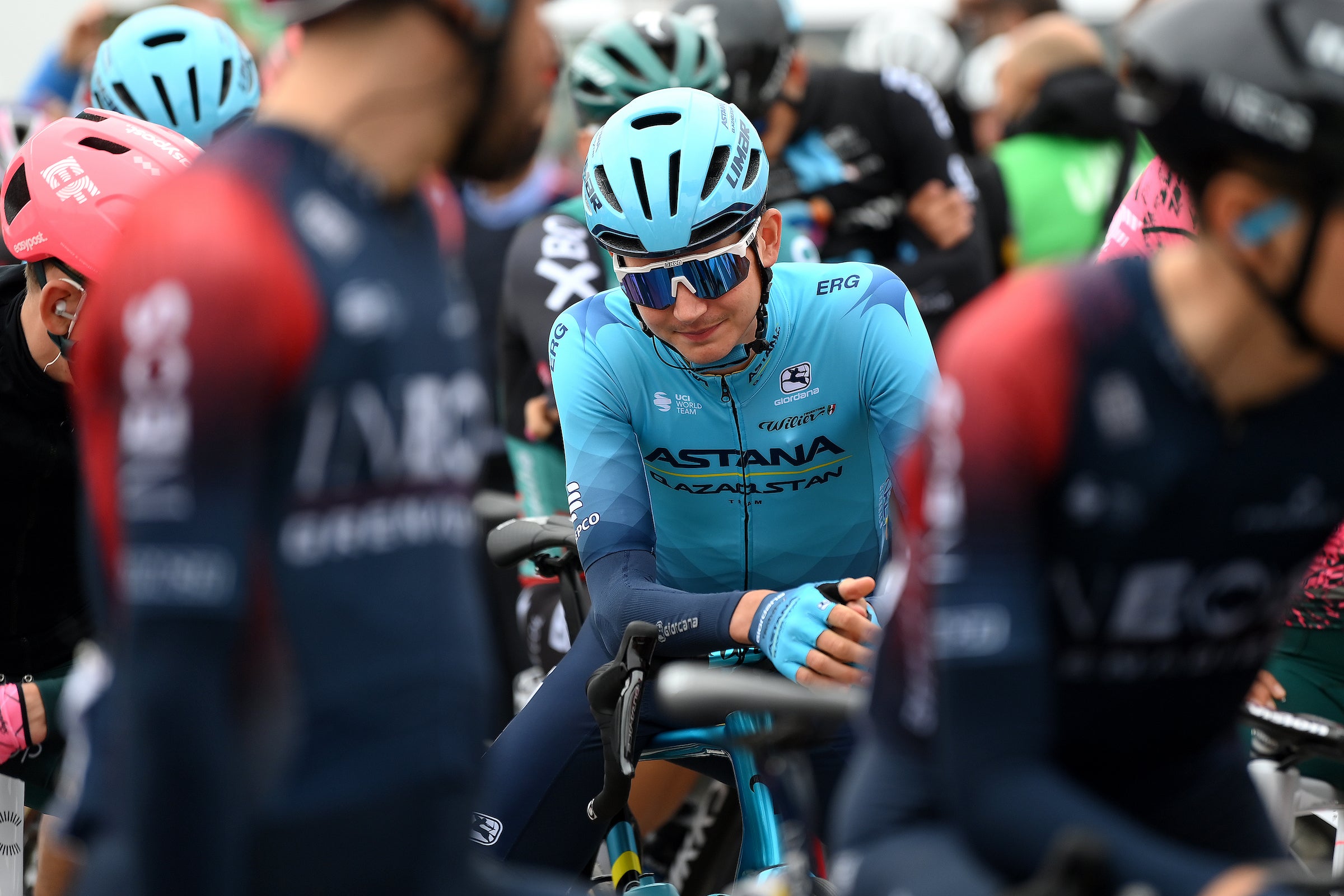Ex-pat life: Joe Dombrowski going from feeling isolated in Europe to feeling at home

Joe Dombrowski (Photo: David Ramos/Getty Images)
Life as an ex-pat in Europe can be challenging for some American riders with few opportunities to go home and see family, new languages, and cultural changes.
Joe Dombrowski is one of many riders from the U.S. that has made his home in Europe in order to further his professional career. It was a difficult move at first when he upped sticks ahead of the 2013 season to make a life in Nice, France, and had to learn to live away from his existing friends and family.
However, Dombrowski has fallen for the French lifestyle and he’s considering hanging around when his career comes to an end — whenever that is. This winter even saw him spend the Christmas period in France for the second year in a row, despite the lifting of COVID-19 restrictions making the journey home far easier.
“My wife and I speak about this sometimes, and we don’t really have that much desire to go back to the U.S. Of course, it’s nice to be back and we tend to go back around the holidays, but I’m quite settled and that’s something that has kind of changed over the course of my career,” Dombrowski told VeloNews. “When I first turned professional, any chance I could get to go back, I was going back. It was quite a struggle to live alone in a different country, in the first year.
“After my second year, I had a roommate, and Larry Warbasse and I lived together. We ended up living together for like five or six years, but the first year, I was all alone and that was hard. At the time, I didn’t speak the language, you don’t really know how a lot of things work, and then it’s like, if things aren’t going well in the race, you just go home and there’s no one there. It’s not that you can go speak to other people around, you don’t have friends really, it’s really isolating.”
Also read:
- Joe Dombrowski ready to step into GC role at Astana if needed, but would prefer to stage hunt
- Joe Dombrowski on cycling reforms: ‘I don’t see it changing in my career’
- Joe Dombrowski on Tour de France debut: ‘The Tour is the one race that is bigger than cycling’
While he now has a flourishing life in Europe, it took some time to create an environment where it felt like home. He says that it is an adjustment that can make or break a young rider’s career and he wishes that he’d had more help.
“That’s something that’s probably, to be honest, a little bit overlooked. For the European riders, it’s a lot easier for them than North or South Americans or Australians, people coming from other parts of the world,” Dombrowski said.
A Nice life
Dombrowski has done it a little differently from many of his contemporaries, setting up his life in Nice. Over the last couple of decades, a number of communities have cropped up in Europe that are dominated by non-European professionals.
Girona is probably the most popular of these small communities with a vast array of bike riders from across the peloton living there throughout the season. For many new professionals, having this ex-pat set-up makes for an easier transition to Europe.
Dombrowski prefers the solitude away from his fellow pros when he gets back to Nice.
“I originally came to Nice because my first team was Sky and they wanted me to be there because they have a hub there with some of the coaches living there and a lot of their riders and they felt that it was good. They’re closer to Monaco, but it’s not far,” Dombrowski told VeloNews. “I actually, I spent time in Girona but I don’t particularly like it just in the sense that it’s not that big of a town, and there’s a lot of bike riders there and if I go out to dinner, I want to not see the rest of the peloton.
“If I were to look back on it, probably the first couple of years would have been a lot easier for me to be there. As I’ve kind of developed as a rider, but also a person, I don’t think that is where I would want to be,” he said. “Over that time, I’ve really come to love Nice. You have great weather, and everything is pretty close. I live in the fort right in the center, and I can walk to everything that I need. You also have the mountains.
“What I really like is that it’s fun to live in the city center, it’s nice to be able to walk to good restaurants, and you have art galleries and just a lot of like activity, but also the way it is topographically with the mountains directly behind it. You can also get to quite remote areas without going that far, which is nice.”
While he doesn’t live near so many fellow professionals, Dombrowski has still found a cycling community near his home.
“It’s nice to also have established French friends in Nice. A lot of them are within the bubble of cycling because you tend to hang out with people that do things that you do, but meeting actual local people and going out and riding with them and hanging out in the evening is good,” he said.
“It’s easy when you are living in a different country to get kind of just into this like ex-pat bubble, which is good and it’s like a supportive network and that applies to cycling. Even in the U.S., you see ex-pat groups that immigrate into the U.S., and they really help each other in like a certain niche industry, but it’s also good to branch out.”